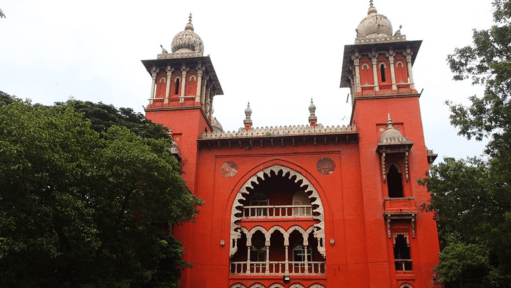
Madras High Court Grants Wife Guardianship Over Comatose Husband, Permits Property Sale
When the statutes are silent on issues concerning patients in coma, the courts can invoke their parens patriae jurisdiction, say judges
The Madras High Court has permitted the wife of a person in a comatose condition to sell/mortgage his immovable property worth over ₹1 crore and utilise the proceeds for taking care of his medical expenses as well as the maintenance of the family, consisting of a son and a daughter.
The petitioner stated that her husband was admitted to a private hospital from February 13 to April 4, during which she spent a substantial amount of money on his treatment. Her husband is currently being cared for by paramedics at home. She requested the court to permit the sale of the property to cover medical expenses and support the family.
In an intra-Court appeal filed under Clause 15 of the Letters Patent against an earlier order, the Court had initially directed the petitioner to approach the jurisdictional Civil Court instead of granting her guardianship in a writ petition under Article 226 of the Constitution of India.
However, the Division Bench of G.R. Swaminathan and P.B. Balaji JJ set aside this order and issued the following directions:
- The appellant was appointed as the guardian for her husband's person and properties.
- The appellant was permitted to manage and dispose of the property on her husband's behalf. She was also directed to ensure that a sum of Rs50 lakhs is deposited in a nationalised bank in her husband's name. The interest accrued from this deposit can be withdrawn by the appellant every three months. This fixed deposit is to remain until the husband's lifetime, after which it will be divided into three equal shares among his legal heirs.
- The appellant was directed to file an affidavit before the Registry of the Court indicating compliance with the direction to create a fixed deposit of Rs50 lakhs in her husband's name.
After interacting with the petitioner’s children, the court was satisfied that the family had no source of income. Without permission to manage the mentioned property, they would face significant hardship. The court acknowledged that caring for a person in a comatose state is challenging and requires monetary support, including hiring paramedical staff.
The Court noted that the property belongs to the husband and should be used for his benefit. Since the petitioner’s husband cannot care for himself, the appellant is bearing the entire burden. Thus, the Court found it improper to direct the appellant to move to the civil court.
It emphasised that when relief can be granted based on admitted and proven facts, there is no reason to deny the appellant on technical grounds of writ petition maintainability. The court also pointed out that similar writ petitions had been entertained and reliefs granted, making the single judge's decision to dismiss the writ petition incorrect.
The court reiterated that after the petitioner's husband's demise, the fixed deposit would be divided into three equal shares for his legal heirs: his wife, daughter and son.
For any enquiries or information, contact ask@tlr.ae or call us on +971 52 644 3004. Follow The Law Reporters on WhatsApp Channels.